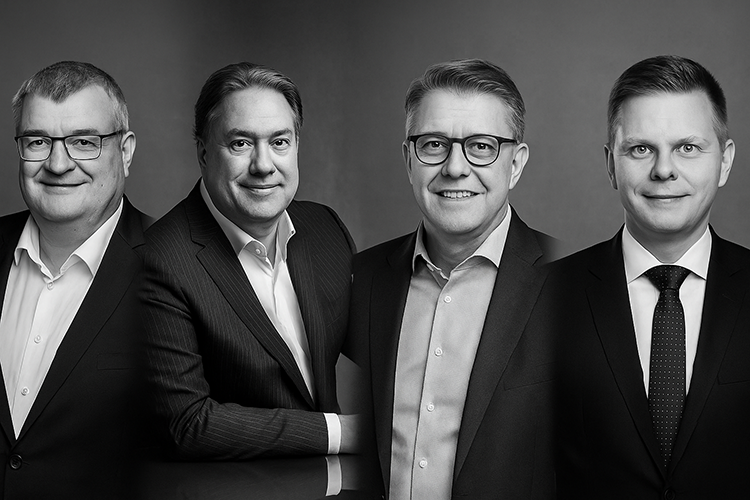2025-06-18
finance

The German real estate financing market remains under pressure, but experts are beginning to note cautious signs of stabilisation. According to the latest BF.Quartalsbarometer, a sentiment analysis published by BF.direkt AG in collaboration with bulwiengesa AG, the mood among financiers has slightly improved in the second half of 2025. However, a sustained recovery is not yet in sight, as conditions remain shaped by ongoing caution, interest rate volatility, and geopolitical uncertainty. At a recent online press conference hosted by RUECKERCONSULT, real estate and finance leaders including Francesco Fedele (CEO, BF.direkt AG), Torsten Hollstein (Managing Director, CR Investment Management), Peter Axmann (Head of Real Estate Clients, Hamburg Commercial Bank), and Alexander Eggert (Managing Director, HIH Invest Real Estate) provided insight into the state of the market. They agreed that while sentiment is improving slightly, forward deals remain rare and financing conditions are still tight, particularly for assets with uncertain income streams. The residential real estate segment continues to be viewed as resilient, supported by demand that far outpaces new construction activity. In contrast, the commercial property sector is seeing a clear split. High-quality, ESG-compliant office assets in prime locations leased to strong tenants continue to attract financing on favourable terms. Lower-grade properties in less desirable areas, however, remain difficult to finance or trade. Many owners are opting to delay transactions, holding out for greater market stability, as investors’ pricing expectations remain low. There is a growing reliance on active asset management and alternative financing strategies. For properties that struggle with follow-up financing, improving leasing performance and developing realistic repositioning or exit strategies are key. When traditional bank loans are not feasible, credit funds and whole loan structures are increasingly being considered. Financing restructurings are also being used to avoid forced sales and to reduce loss risk. Peter Axmann from Hamburg Commercial Bank noted that while new financing activity is gradually increasing, it is rebounding from a low base. He observed a slight uptick in residential property prices, while interest in hotel and retail assets remains subdued, though shopping centres may now offer re-entry opportunities due to significant price corrections. Logistics rents remain stable, but lease-up periods are becoming longer. Torsten Hollstein of CR Investment Management remarked that despite widespread negative headlines and increasing refinancing pressure, sentiment has improved. He attributed this to the return of some international capital, with Germany once again appearing near the top of many investors’ target lists, albeit with more cautious and selective strategies. Francesco Fedele of BF.direkt AG stressed that deep real estate expertise is more important than ever. Properties facing refinancing difficulties can often be repositioned successfully—provided there is a sound concept. He pointed out that within the core segment, there is now a wider spread of financing terms, and noted that many newer investments carry more leverage than those made several years ago. Alexander Eggert of HIH Invest Real Estate reported that his firm is not experiencing issues with loan extensions. HIH holds a loan portfolio of approximately €6 billion and regularly extends €400 to €600 million annually. In 2024, HIH reached a transaction volume of €1.3 billion, including significant financing activity. While the firm sees that interest rate adjustments are now largely reflected in valuations, it does not observe notable risk premiums in either financing or refinancing scenarios. Nevertheless, Eggert acknowledged that legacy issues from previous market cycles still require attention. Overall, while the German real estate financing market continues to face headwinds, the gradual return of capital, growing investor selectivity, and the rise of alternative financing tools suggest a sector slowly finding its footing. The path to recovery may be uneven, but cautious optimism is beginning to take hold. Photo: Peter Axmann, Leiter Immobilienkunden - Hamburg Commercial Bank, Torsten Hollstein, Geschäftsführer - CR Investment Management, Francesco Fedele, CEO - BF.direkt AG and Alexander Eggert, Geschäftsführer - HIH Invest Real Estate

